
China
17:05, 27-Oct-2017
CPC Collection: Questions for the CPC press conferences from CGTN's reporters
By CGTN's Li Ying
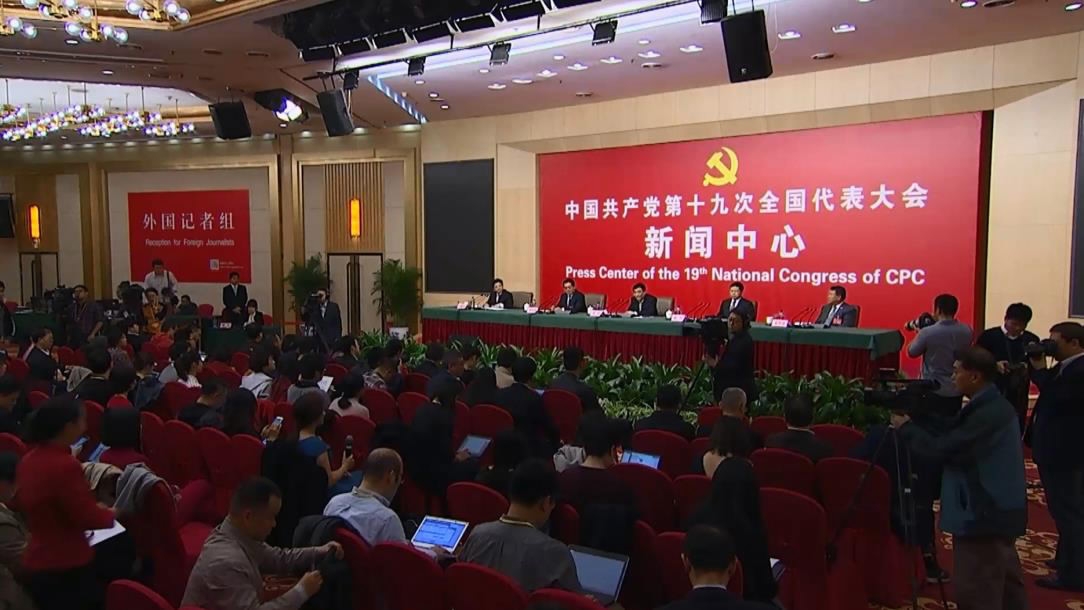
The week-long 19th Communist Party of China (CPC) National Congress is now over. The event addressed issues such as the economy, education, healthcare, and the environment, among others. CGTN's reporters were at the different press conferences to find out more answers to the CPC events.
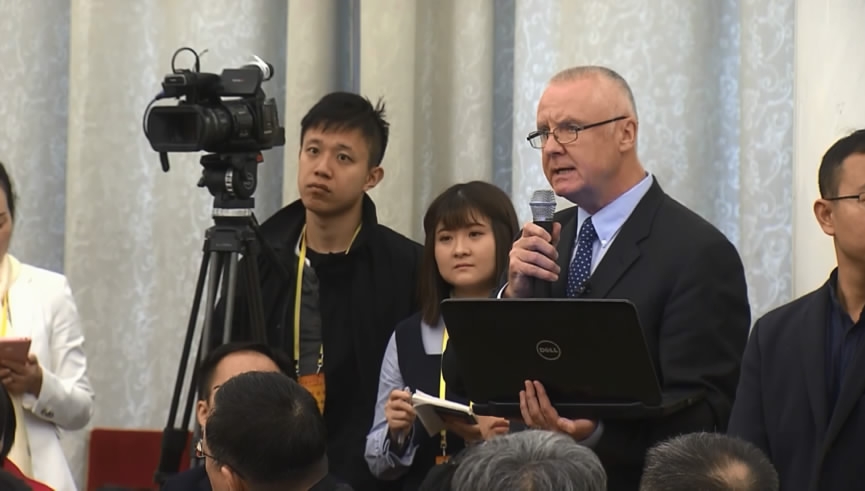
The reporter John Terrett from Washington, DC, said, "New Era" theory will guide China through the next five years and way beyond, the Great Hall of the People is calm and peaceful once more. Calm and peaceful - but far from empty - because in rooms around this famous complex sit groups of people from all over the country. They're delegations from China's provinces and they're in town for the 19th CPC National Congress but also here to stick up for their regions. For the topic of rural poverty in the discussion group, he asked what kind of new policies for poverty alleviation were the delegates likely to achieve here at the National Congress? And Qu Mu said that they must achieve the removal of poverty issues by the end of 2020, and will continue to advance poverty reduction by drawing on the joint efforts of government, society and the market.
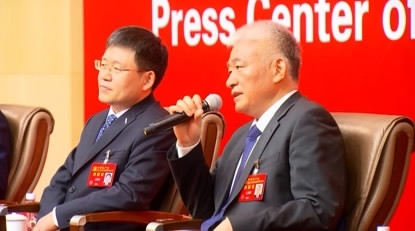
And in the press conference about innovation on October 20, John gave his second question during the Congress. He said in front of him were the great and the good of Chinese S-T-I - the senior men and women who’ll make it happen in the years to come. Space, Internet, low carbon emissions, transport – even fully automated vehicles – they could talk about it all. A lot of the questions from local journalists were along the lines of "how can the environment for science and technology in China be improved?" General Secretary Xi Jinping specifically mentioned driver-less cars during Wednesday’s address in the Great Hall of the People, so when it became his turn – that’s what he asked about: "What are China’s plans for becoming a world leader in fully automated driver-less vehicles?" Vice Minister of Science and Technology Wang Zhigang gave the answer. "The government will put more effort into supporting and encouraging the development of this industry, however, in practice there are many uncertainties to putting automated vehicles on the road but we will still try our best to make the rapid development all over the world."
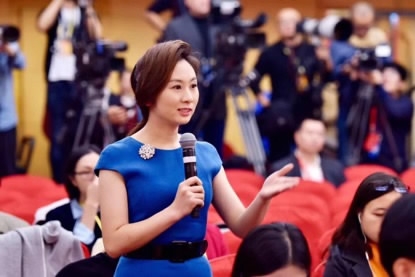
As CGTN’s reporter Wang Hui expressed, in recent years, China’s tech and manufacturing advancements have been impressive. From smart factories to tech innovations such as mobile payment, China continues to be at the forefront. Chinese Premier Li Keqiang urged the related ministries and enterprises to make internet connectivity faster and more affordable in various locations. The industry and information technology sector has taken actions to cancel cellphones’ long distance fees and roaming fees. So in the press conference on October 19, she asked the Chinese Minister of Industry and Information Technology about their future plan in improving telecommunication: "Since September 1, China's three major telecom companies have canceled the long-distance and roaming fees for cellphones. You reached this goal one month ahead of the original plan, presenting the ordinary people a gift package. What are the future plans of the ministry to reduce telecommunication fees and speed up the country's internet network? And when can the new measures benefit ordinary people and enterprises?"
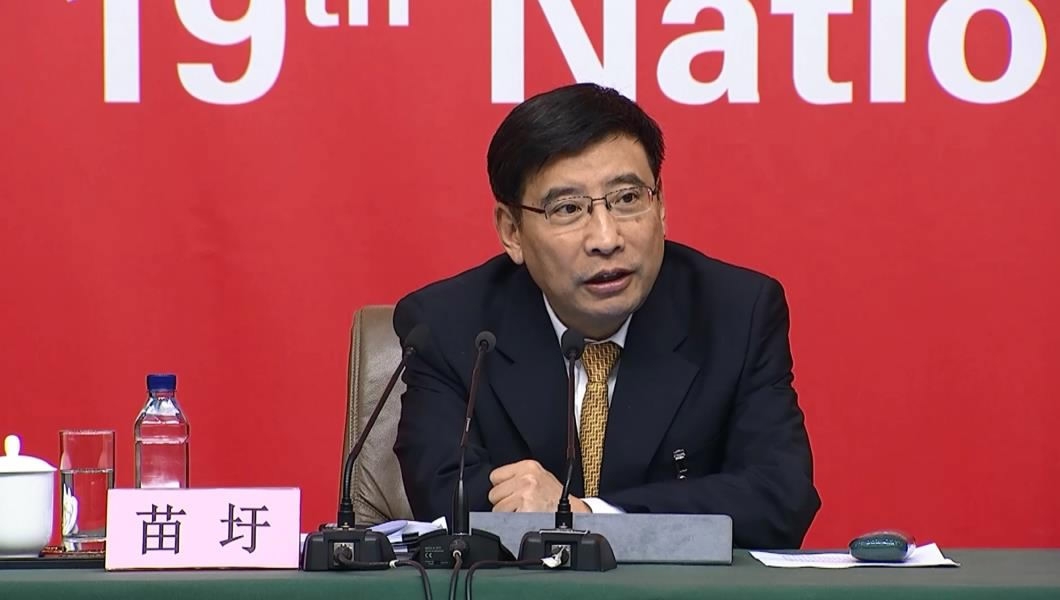
Party secretary of Ministry of Industry & Information Technology Miao Wei answers the question. /CGTN Photo
Party secretary of Ministry of Industry & Information Technology Miao Wei answers the question. /CGTN Photo
Party secretary of Ministry of Industry & Information Technology, Miao Wei said that in the past couple of years, the Chinese consumers of 4G network have increased from zero to 930 million, making up more than 67 percent of entire cellphone users in China. In the fixed broadband market, they have realized the coverage of optical network in all urban areas – ranking first in the world. These measures have remarkably helped the development of bike-sharing, mobile payments, and take out deliveries. They will take further measures that follow the people's renewed expectations and new tide of digital economy.
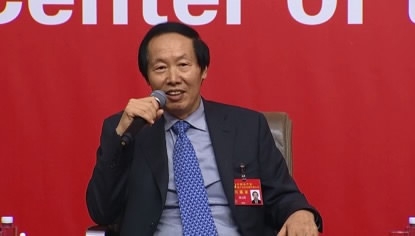
Wang Hui also attended the next day’s press conference. Attended by delegates from the fields of cultural heritage, media, modern drama, and the Peking opera, China's cultural sector held a group interview Friday afternoon on the sidelines of the Party Congress. One of the interviewees at the group interview was Liu Yuzhu, the head of China’s State Administration of Cultural Heritage. But before taking this position, he was in charge of affairs related to cultural market and cultural industry in the Ministry of Culture for many years until 2014. He was also one of China’s representatives to negotiate China’s deal to join the World Trade Organization.
Because of his rich experience and expertise, Wang believe he will be a good person to address the issue about foreign investments in Chinese cultural industry, so she raised the question to him in the CPC press conference and asked, according to the new China Film Industry Promotion Law, it’s the first time that China will allow foreign investment to access the Chinese film industry under certain conditions.
Also, another document released from the state council is the Notification on the Measures of Facilitating Foreign Investment, which covers two sectors of the cultural industry, internet bars and performance agencies. Do these two documents indicate that China will further lower its requirements for foreign investment in the cultural industry? What kind of signal is that? How will this impact foreign investment? And what’s your opinion on these changes?
Secretary of the Party committee of China's state administration of cultural heritage, Liu Yuzhu, said that China’s cultural industry is developing rapidly, and the activity level of the cultural market is beyond our imagination. The area covered by the Ministry of Culture has been widely open to the world, with no areas that are only open to domestic investors. The two documents that the reporter mentioned are actually not just signals, but a continuation of our cultural construction’s openness to the world. China’s openness to the world, as addressed in General Secretary Xi's report, is unprecedented, and the width and depth of China’s cooperation with the world will be unprecedented, too. The cultural area is no exception.
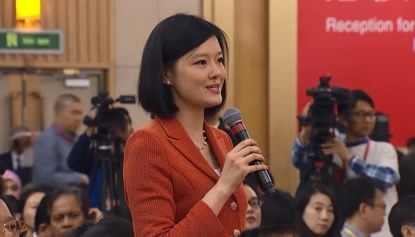
CGTN’s Reporter Zou Yun also attended one of the CPC press conferences and expressed that various parts of the industry were becoming stronger and more competitive. China is now the largest market for books, small-screen dramas, and big-screen productions. In recent years, in the reform of cultural institutions, it has been emphasized that efforts must be made to produce both social and economic benefits, with priority given to social benefits. This is also reiterated in the report to the 19th CPC national congress. At the press conference on cultural and ethical progress, she asked senior officials why the thoughts were behind such a move.
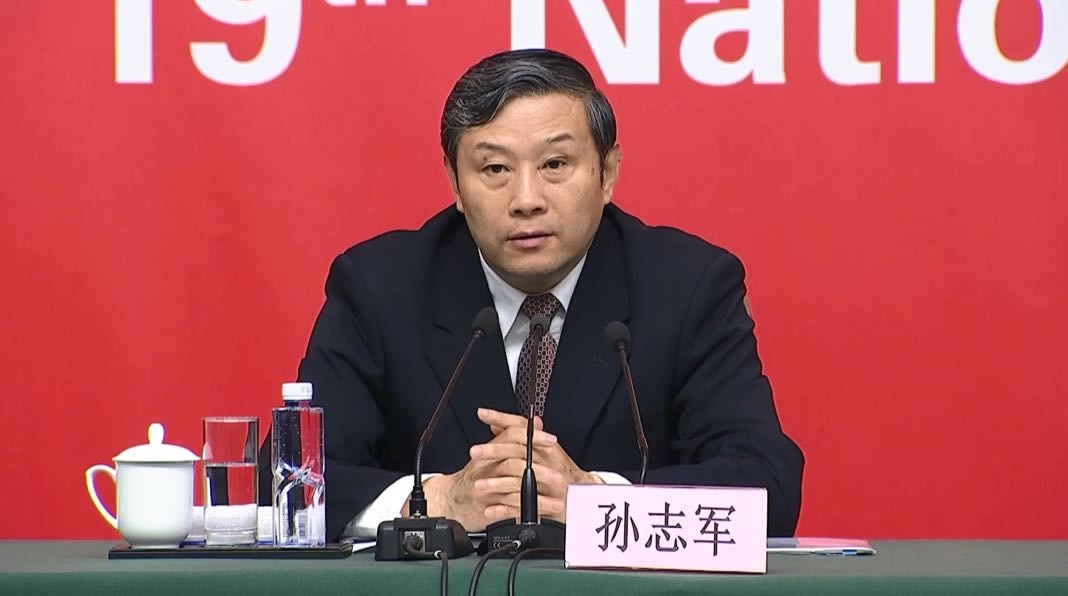
The deputy head of CPC Central Committee Publicity Department Sun Zhijun / CGTN Photo
The deputy head of CPC Central Committee Publicity Department Sun Zhijun / CGTN Photo
The deputy head of CPC Central Committee's Publicity Department, Sun Zhijun said that in a socialist market economy, culture has twin functions, namely educational and recreational functions. As a result, culture products and services have both ideological and commercial dimensions. We cannot focus solely on market share, ratings, box office revenue. We should not enslave ourselves to the market.
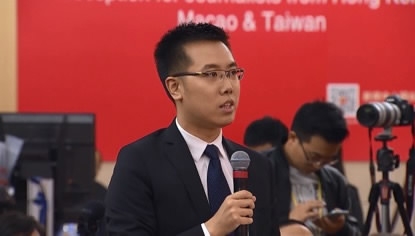
CGTN’s reporter Han Peng attended another press conference that was held by the United Front Work Department of the CPC Central Committee. As he said, this department is not a very familiar term for many foreign viewers, but it is immensely important for the CPC's leadership in China. The Party knows and does not seem to mind that not everyone in China has the same pursuit of Communist ideologies. Take religion for example, the CPC, an atheist political party, hopes to unite Muslims, Christians, and Tibetan Buddhist as well, with the common pursuit of building China into a better country. Meanwhile, instead of what many Westerners believe to be a "one-Party rule", Chinese people with different ideological pursuits are represented by their own political parties. There are eight other parties besides "the Party". So he asked a question about how these parties are working with the ruling CPC.
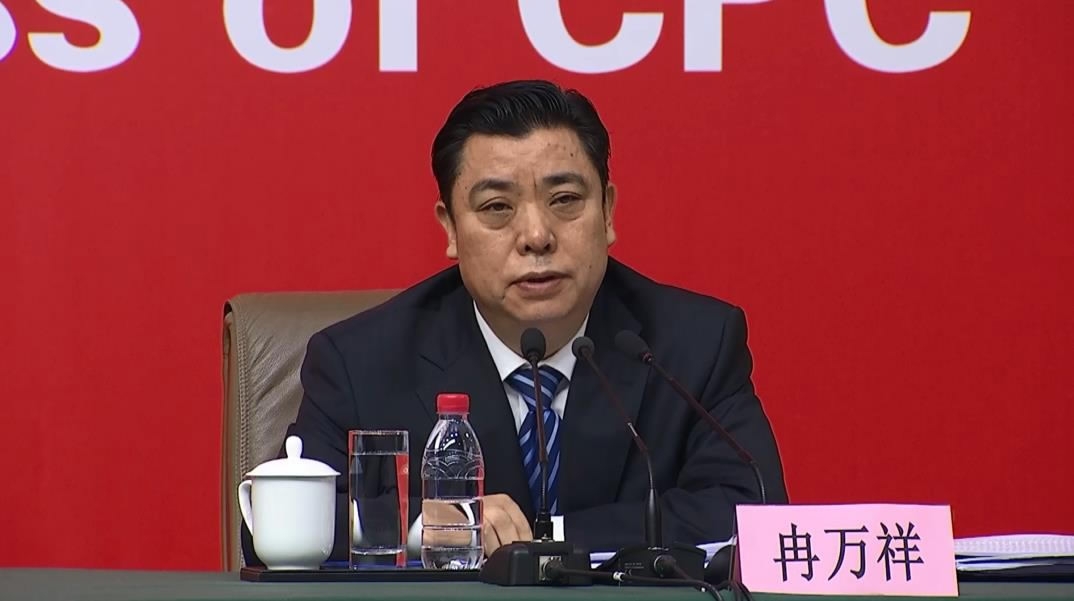
The Secretary General of United Front Work Department Ran Wanxiang answers the question. / CGTN Photo
The Secretary General of United Front Work Department Ran Wanxiang answers the question. / CGTN Photo
Ran Wanxiang said that the system is like a towering mountain, showing different strengths if people observe from different angles and aspects, meaning they may find different strengths and advantages. First this system has a long history and was gradually formed in the process of China’s revelation and development practices. It is a choice of history and a choice made by the people. In the era of new democratic revolution, various political parties in the process of revelation, gradually endorsed and accepted the political principals of CPC. In 1948, they responded to the mayday call made by the CPC, and that was a milestone from the moment. Since then, non-CPC parties and people without party of affiliation voluntarily chose to accept the leadership of CPC, and this opened a new page in multiparty cooperation.

SITEMAP
Copyright © 2018 CGTN. Beijing ICP prepared NO.16065310-3
Copyright © 2018 CGTN. Beijing ICP prepared NO.16065310-3